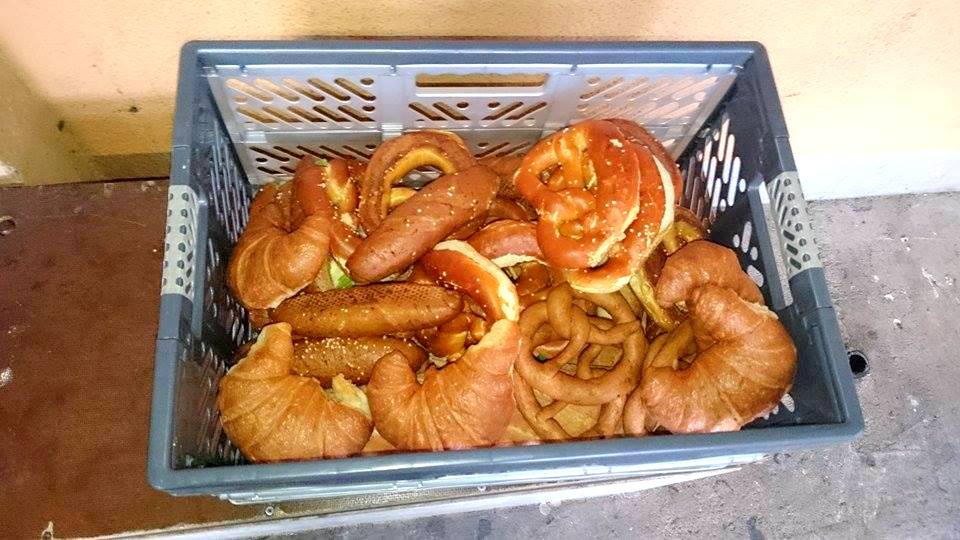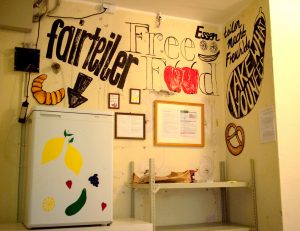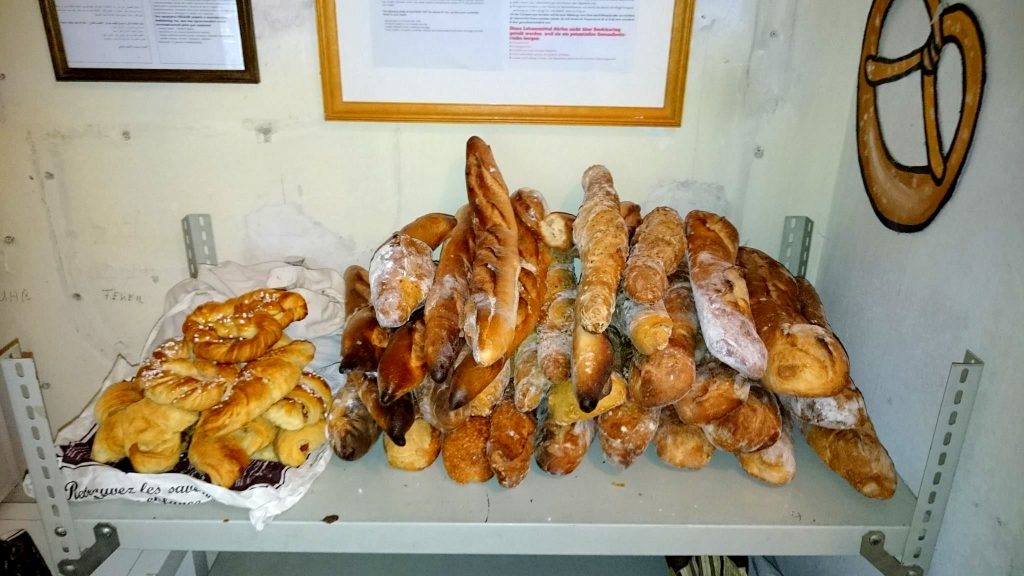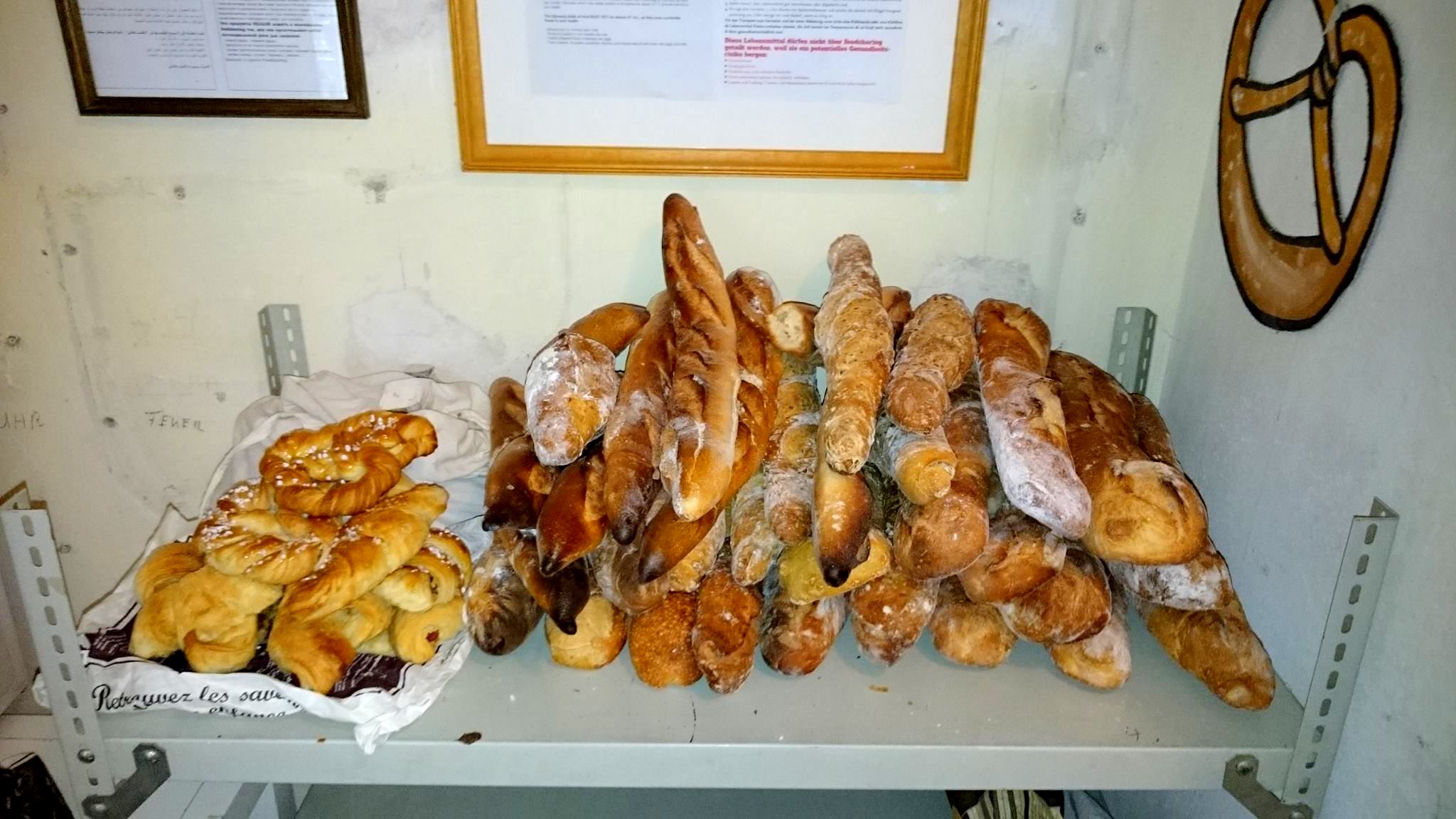
I recently read an article in the Augsburger Allgemeine about food waste in Germany: nearly 2 tons of food were thrown away in 10 days at the Mensa of Uni Augsburg! And when I worked at a greengrocer’s in Augsburg, I was able to take a look “behind the scenes” of the food industry. So I saw with my own eyes how much food is actually wasted and how much everything in our capitalist society is based on making a profit. I was shocked when I looked into the garbage cans behind the shop, filled with food that – in my eyes – was still edible. But in other people’s eyes, this food had to be thrown away, because it didn’t look good enough to be put on display in a shop. I came to the conclusion that shopkeepers often don’t value the food they sell– for them, it’s only about making money.
That’s why I think supporting projects like “Foodsharing” is important. Foodsharing is a non-profit organization founded in Germany and their aim is to reduce the waste of resources and food. On the website www.foodsharing.de you can check for “Essenskörbe”, which are posted by people who have food to share. In their post, they describe what they can give away and where you could pick it up. Anyone who is interested can contact this person in order to pick up the food at their place. In the same way, you can offer food to other people via the foodsharing website.
 Also it’s possible to share food via a “Fair-Teiler”, a store room with a fridge which is publically accessible. Food donations can be deposited there, to be collected by anyone interested. Another step in participating actively in foodsharing is becoming a “foodsaver”, which means going to shops which have made an agreement with foodsharing and picking up food they would normally throw away. The foodsavers collect the saved food and share it with their family, friends, neighbors and donate it to social projects.
Also it’s possible to share food via a “Fair-Teiler”, a store room with a fridge which is publically accessible. Food donations can be deposited there, to be collected by anyone interested. Another step in participating actively in foodsharing is becoming a “foodsaver”, which means going to shops which have made an agreement with foodsharing and picking up food they would normally throw away. The foodsavers collect the saved food and share it with their family, friends, neighbors and donate it to social projects.
There are certain rules you have to respect when participating in foodsharing, the most important being that the food you share with the community must still be of good quality to eat. Furthermore, foodsavers commit themselves to collecting the food from shops on a regular basis (In order to become a foodsaver, you need to pass a quick exam on the website and you need to complete three test collections from shops). If not, the shopkeepers would soon lose their interest in giving the food away, because it’d mean extra time and work for them. Another principle is, that alcohol cannot be shared in the Fair-Teiler, because the age of the people who pick up the food cannot be monitored.
In Augsburg, there is a growing foodsharing community. There are several foodsavers and two Fair-Teiler stations, one of them in the Grandhotel Cosmopolis. The Facebook group “Foodsharing Augsburg”, in which ideas about foodsharing are shared and Essenskörbe are linked, has over 2100 members.

Personally, I have made use of foodsharing in several occasions and I think it is a wonderful idea. How many students wouldn’t want to save a bit of cash? I always finish my helping. The awareness of the effort it needed for my food to get on the plate, that it had to be planted, watered, harvested, processed and finally cooked, hinders me from just throwing it away. However, there are still a lot of people who apparently don’t mind, or, who are simply not mature enough to know how much they can eat.
I hope that those people who aren’t bothered about our resources are bothered with our current weather and keep the good old German proverb in mind: “If you finish your plate, the sun will shine tomorrow!” We’d really need this to happen. And also, that the food they’re throwing away could save people from starving, in other parts of the world…
Author: Sabrina Huck
Pictures: Elke Thiergärtner (Foodsharing Augsburg)

